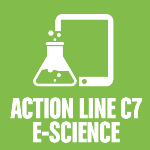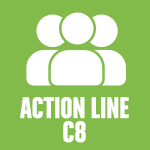Official Opening Segment
Session 119
The Opening Ceremony sets the priorities of the WSIS Forum 2019, bringing forth a wide range of topics within the Global Information and Knowledge Societies while emphasizing the role of Information and Communication Technologies (ICTs), WSIS Action Lines in particular, regarding the recently adopted Sustainable Development Goals (SDGs). In this way, the WSIS Forum 2019 builds upon the outcomes of the UN General Assembly Overall Review of the implementation of the WSIS outcomes (UNGA Resolution 70/125), which recognized the necessity of holding this Forum on an annual basis and called for a close alignment between WSIS and the SDG processes.
The WSIS Forum 2019 will therefore serve as a key forum for discussing the role of ICTs as a means of implementation of the SDGs and targets, with due regard to the global mechanism for follow-up and review of the implementation of the 2030 Agenda for Sustainable Development (UNGA Resolution A/70/1). The WSIS-SDG Matrix, developed by UN WSIS Action Line Facilitator and presented at the WSIS Forum 2015, will serve as the mechanism to map, analyse and coordinate the implementation of WSIS Action Lines, and more specifically, ICTs as enablers and accelerators of the SDGs.
The ceremony will begin with opening statements from the host, co-organizers, partners and representatives of stakeholders engaged in the WSIS Process. The Opening Ceremony will conclude with the handing out of the WSIS prizes.
The format, agenda, and the thematic focus of the Forum is a result of an open consultation process with the involvement of all WSIS Stakeholders. The Forum will build upon two tracks, the High-Level Track, and the Forum Track.
Speakers/Panellists
9:00–10:00
Opening Ceremony (Statements):
- Mr. Houlin Zhao, Secretary-General, ITU
- Ms. Isabelle Durant, Deputy Secretary-General, UNCTAD
- H.E Eng. Majed Sultan Al Mesmar, Deputy Director General, Telecommunication Sector, Telecommunications Regulatory Authority (TRA), United Arab Emirates (Gold Plus Partner)
- H.E. Dr. Abdulaziz Bin Salem Al-Ruwais, Governor, CITC, Saudi Arabia (Gold Partner)
- Ms. Arancha González, Executive Director, ITC
- Mr. Nikhil Seth,United Nations Assistant Secretary-General, Executive Director, UNITAR
- Mr. D. Wenjian Zhang, Assistant Secretary General, WMO
- Ms. Gulden Turkoz-Cosslett, Deputy Assistant Administrator of UNDP and Deputy Director of UNDP's Bureau for External Relations and Advocacy (BERA)
- Mr. Abdulaziz Almuzaini, Director of the Geneva Liaison Office, UNESCO
- Mr. Peter Major, Vice- Chair, UNCSTD
- Prof. Alison Gillwald, Executive Director, Research ICT Africa University of Cape Town
- Mr. Crispin Conroy, ICC Representative Director and Permanent Observer to the UNOG, International Chamber of Commerce
10:00–10:10
Appointment of the Chairman of the WSIS Forum 2019 and Announcement of High-level Track Facilitators
- Mr. Houlin Zhao, Secretary-General, ITU
- Chairman Elect: H.E. Mr. Mustafa Jabbar, Minister, Ministry of Posts, Telecommunications and Information Technology, Bangladesh
10:10–11:10
High-level Strategic Dialogue - Multistakeholder Partnership for WSIS Implementation
- Chairman of the WSIS Forum 2019 — H.E. Mr. Mustafa Jabbar, Minister, Ministry of Posts, Telecommunications and Information Technology, Bangladesh
- Mr. Malcolm Johnson, Deputy Secretary-General, ITU (Moderator)
- Japan — Mr. Hisazumi Shirae, Director for Technology Cooperation, International Policy Division, Ministry of Internal Affairs and Communications
- Oman — Mr. Dr. Salim Al Ruzaiqi, CEO, Information Technology Authority
- Switzerland — Mr. Thomas Schneider, Ambassador and Head of International Relations Service, Federal Office of Communications of Switzerland (OFCOM)
- Rwanda — Ms. Claudette Irere, Permanent Secretary, Ministry of ICT and Innovation
- Poland — Mr. Marcin Cichy, President, Office for Electronic Communications
- IEEE — Dr. Konstantinos Karachalios, Managing Director
- ICANN — Ms Theresa Swinehart, Senior Advisor to the President on Global Strategy at ICANN, and Senior Vice President, Multistakeholder Strategy and Strategic Initiatives
- ISOC — Mr. Sebastian Bellagamba, Regional Bureau Director for Latin America and The Caribbean
- ELM —Saudi Arabia - Dr. Nasser Zaid Al-Meshary, Vice President, Business Sectors
11:10-11:15
Announcement of WSIS Forum 2019 Hackathon Winners
11:15–12:15
High-Level Strategic Dialogue – ICTs for Achieving the SDGs & Celebrating 10 Years of the WSIS Forum
- Chairman of the WSIS Forum 2019: H.E. Mr. Mustafa Jabbar, Minister, Ministry of Posts, Telecommunications and Information Technology, Bangladesh
- Ms. Doreen Bogdan-Martin, Director, Telecommunication Development Bureau, ITU (Moderator)
- Dominican Republic — Mrs. Zoraima Cuello, Vice Minister, Ministry of the Presidency
- Germany — Dr. Daniela Brönstrup (Co-Chair of MAG 2019), Deputy Director-General, Regulatory framework for digital policy, postal policy, international affairs, media, Federal Ministry for Economic Affairs and Energy
- China — Mr. Wang Xinzhe, Chief Economist of the Ministry of Industry and Information Technology
- Chairman Council Working Group on WSIS&SDGs and MPP WSIS+10 High level Event 2014 — Prof. Dr. Vladimir Minkin, Chief Scientist, FSUE NIIR
- UN Secretary General’s High-level Panel on Digital Cooperation — Mr. Amandeep Singh Gill, Co-Lead and Executive Director of the Secretariat
- UN Technology Bank, for the Least Developed Countries — Mr. Joshua Setipa, Managing Director9
- WHO — Dr Soumya Swaminathan, Chief Scientist
- UNIDO — Mr. Philippe Scholtès, Managing Director, Programme Development and Cooperation
- IFIP — Ms. Moira de Roche Holmes, Chair of IFIP IP3
Session's link to WSIS Action Lines
-
 C1. The role of public governance authorities and all stakeholders in the promotion of ICTs for development
C1. The role of public governance authorities and all stakeholders in the promotion of ICTs for development
-
 C2. Information and communication infrastructure
C2. Information and communication infrastructure
-
 C3. Access to information and knowledge
C3. Access to information and knowledge
-
 C4. Capacity building
C4. Capacity building
-
 C5. Building confidence and security in the use of ICTs
C5. Building confidence and security in the use of ICTs
-
 C6. Enabling environment
C6. Enabling environment
-
 C7. ICT Applications: E-government
C7. ICT Applications: E-government
-
 C7. ICT Applications: E-business
C7. ICT Applications: E-business
-
 C7. ICT Applications: E-learning
C7. ICT Applications: E-learning
-
 C7. ICT Applications: E-health
C7. ICT Applications: E-health
-
 C7. ICT Applications: E-employment
C7. ICT Applications: E-employment
-
 C7. ICT Applications: E-environment
C7. ICT Applications: E-environment
-
 C7. ICT Applications: E-agriculture
C7. ICT Applications: E-agriculture
-
 C7. ICT Applications: E-science
C7. ICT Applications: E-science
-
 C8. Cultural diversity and identity, linguistic diversity and local content
C8. Cultural diversity and identity, linguistic diversity and local content
-
 C9. Media
C9. Media
-
 C10. Ethical dimensions of the Information Society
C10. Ethical dimensions of the Information Society
-
 C11. International and regional cooperation
C11. International and regional cooperation
Session's link to Sustainable Development Process
-
 Goal 1: End poverty in all its forms everywhere
Goal 1: End poverty in all its forms everywhere
-
 Goal 2: End hunger, achieve food security and improved nutrition and promote sustainable agriculture
Goal 2: End hunger, achieve food security and improved nutrition and promote sustainable agriculture
-
 Goal 3: Ensure healthy lives and promote well-being for all
Goal 3: Ensure healthy lives and promote well-being for all
-
 Goal 4: Ensure inclusive and equitable quality education and promote lifelong learning opportunities for all
Goal 4: Ensure inclusive and equitable quality education and promote lifelong learning opportunities for all
-
 Goal 5: Achieve gender equality and empower all women and girls
Goal 5: Achieve gender equality and empower all women and girls
-
 Goal 6: Ensure access to water and sanitation for all
Goal 6: Ensure access to water and sanitation for all
-
 Goal 7: Ensure access to affordable, reliable, sustainable and modern energy for all
Goal 7: Ensure access to affordable, reliable, sustainable and modern energy for all
-
 Goal 8: Promote inclusive and sustainable economic growth, employment and decent work for all
Goal 8: Promote inclusive and sustainable economic growth, employment and decent work for all
-
 Goal 9: Build resilient infrastructure, promote sustainable industrialization and foster innovation
Goal 9: Build resilient infrastructure, promote sustainable industrialization and foster innovation
-
 Goal 10: Reduce inequality within and among countries
Goal 10: Reduce inequality within and among countries
-
 Goal 11: Make cities inclusive, safe, resilient and sustainable
Goal 11: Make cities inclusive, safe, resilient and sustainable
-
 Goal 12: Ensure sustainable consumption and production patterns
Goal 12: Ensure sustainable consumption and production patterns
-
 Goal 13: Take urgent action to combat climate change and its impacts
Goal 13: Take urgent action to combat climate change and its impacts
-
 Goal 14: Conserve and sustainably use the oceans, seas and marine resources
Goal 14: Conserve and sustainably use the oceans, seas and marine resources
-
 Goal 15: Sustainably manage forests, combat desertification, halt and reverse land degradation, halt biodiversity loss
Goal 15: Sustainably manage forests, combat desertification, halt and reverse land degradation, halt biodiversity loss
-
 Goal 16: Promote just, peaceful and inclusive societies
Goal 16: Promote just, peaceful and inclusive societies
-
 Goal 17: Revitalize the global partnership for sustainable development
Goal 17: Revitalize the global partnership for sustainable development